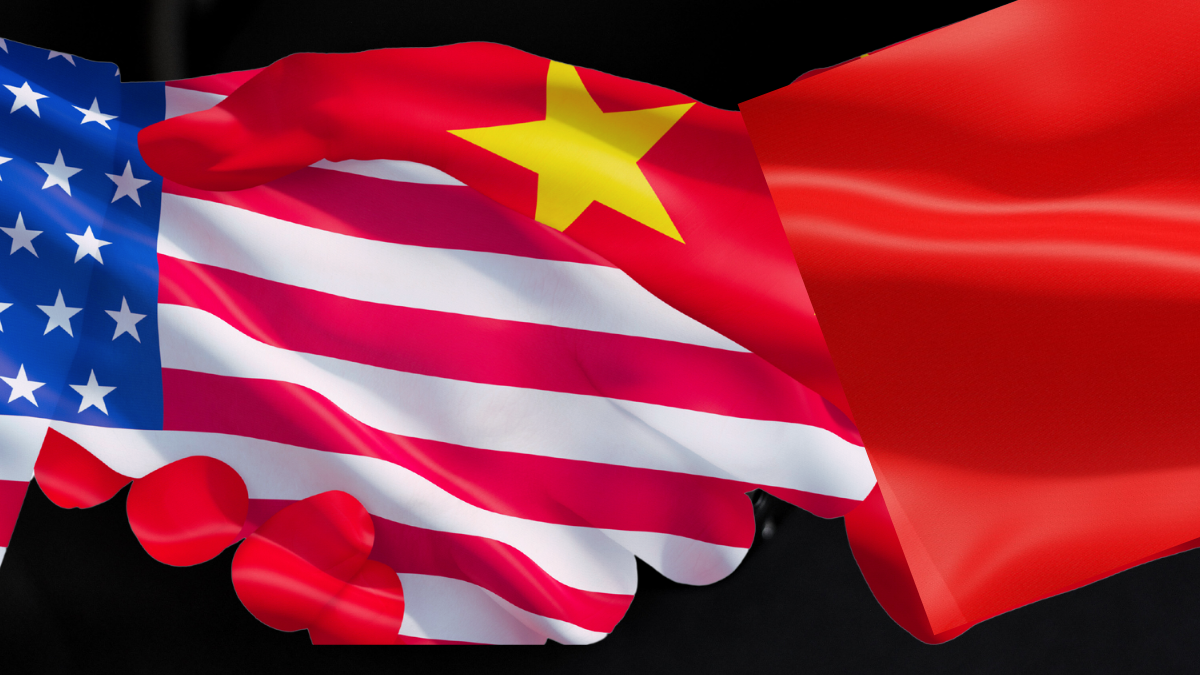On his way back from the G20 meeting in India, US President Joe Biden will stop off in Vietnam on Sept. 10 to seal an agreement to deepen US ties with the Southeast Asian country. The two former enemies will upgrade their bilateral relationship from a “comprehensive partnership” to a “comprehensive strategic partnership,” the highest level in Vietnam’s diplomatic hierarchy. This new top-tier diplomatic status places the US on par with China, Russia, India, and South Korea.
The change may pave the way for weapons sales and closer maritime cooperation. But possibly even more important at a time of intense US-China competition is the symbolism of Vietnam, a Chinese neighbor and fellow communist country, moving closer to the US. We asked Eurasia Group expert Peter Mumford to explain the motivations behind the deal for both sides.
For Vietnam, what is the importance of its relationship with the US?
Vietnam has long had very complicated relations with China, its giant northern neighbor. The two have close (and deepening) economic ties. Yet the Sino-Vietnamese War in 1979 and ongoing territorial disputes in the South China Sea have fueled widespread anti-China sentiment among Vietnam’s population. Strengthening relations with the US, Japan, and other players are crucial to Hanoi’s geopolitical hedging strategy as well its (unsuccessful, so far) attempts to reduce its economic dependence on China.
In addition, Vietnam has long seen its ally Russia as a counterbalance to China, but Moscow’s invasion of Ukraine has made it a less reliable partner and, more importantly, pushed it closer to Beijing. This increases the need for Vietnam to find other ways to hedge its China risk. Yet Hanoi will not move as far toward the US as some in Washington might hope – it will always seek to balance relations with the US and China.
How does Vietnam fit into the US’s strategy toward China and Asia more broadly?
Vietnam’s complex relationship with China as well as its popularity as a destination for firms from the US and other countries moving production out of China have made it increasingly important to Washington. The Biden administration’s Indo-Pacific Strategy identifies Vietnam as one of the “leading regional partners” with which it wishes to deepen relations. Kurt Campbell, the US National Security Council’s coordinator for the Indo-Pacific, has referred to India and Vietnam as the two key “swing states” that will define the future of Asia.
While the focus on strengthening relations with Vietnam is not new in Washington, these efforts were undermined during Donald Trump’s administration by its greater focus on reducing the growing bilateral trade deficit, which included accusing Hanoi of currency manipulation. The US still has some trade-related concerns – including the likely rerouting of Chinese exports to the US via Vietnam – but Biden’s team is more focused on improving bilateral relations.
How does China view the deepening US-Vietnam ties?
Beijing will be concerned to see its southern neighbor granting Washington an upgrade in ties; in a sign of ruffled feathers, China dispatched Liu Jianchao, a senior official, to Hanoi this week where he met with Vietnam’s leader General Secretary Nguyen Phu Trong. It’s important to note, however, that China’s own actions – that is, its increasing assertiveness in the South China Sea – contributed to this decision by Vietnam. This marks another self-inflicted wound for Beijing, alongside pushing the Philippines back into Washington’s orbit after a period of strained relations. Nevertheless, Hanoi will be wary of antagonizing Beijing and likely will agree to upgrade relations with several other countries as well (Australia, Singapore, and Indonesia) to dilute the impact of doing so with the US.
Biden’s trip to Vietnam follows his decision to skip the ASEAN summit earlier in the week – what does that say about the US’s strategy toward Southeast Asia?
Biden’s absence from the summit in Jakarta, Indonesia, exacerbated grumblings that the region appears to be a low priority for Washington. Yet it’s probably an indication that Washington sees investing in bilateral relations with key Southeast Asian countries such as Vietnam as likely to deliver greater geopolitical returns than working with ASEAN as a bloc. (In this regard, Indonesia President Joko Widodo may take Biden’s absence as something of a personal slight, although he hosted the US president for the G20 Summit in Bali last year). In the Indo-Pacific more broadly, the US is focused on wooing India while reinforcing alliances with Japan, South Korea, and Australia, and promoting the Quad grouping of the US, Japan, India, and Australia.
That said, the US was still represented at the US-ASEAN Summit and East Asia Summit at a very senior level with the attendance of Vice President Kamala Harris. Arguably this is on a par with China’s representation: President Xi Jinping rarely attends the China-ASEAN Summit or East Asia Summit, usually delegating these to the premier instead, as occurred again this year.
Edited by Jonathan House, Senior Editor at Eurasia Group
